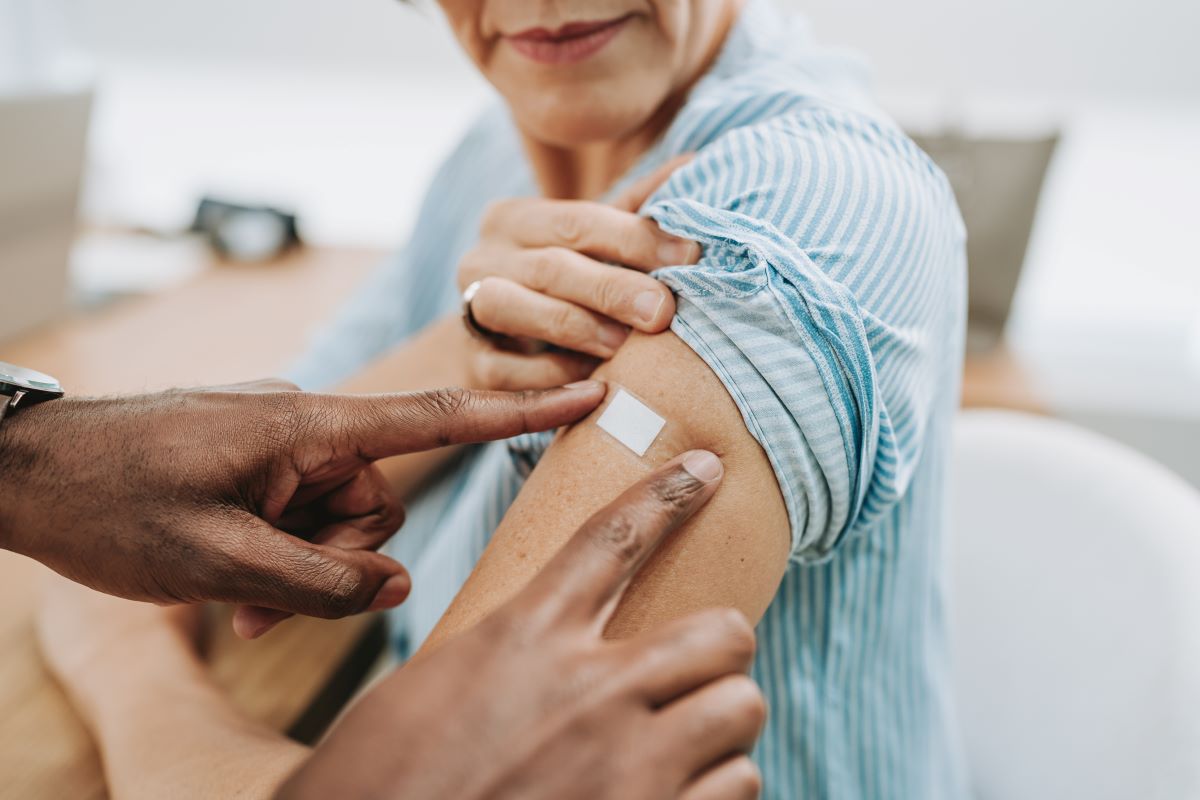
Dr. Larry Anderson is a board-certified primary care physician with nearly 50 years of experience. Here, he answers some of the most common questions he receives about adult vaccines.
Why are adult vaccines important, and what are some common misconceptions?
The first question I usually get is, “Should I get this vaccine?” But the real question is, “Do I want the illness it prevents?” If the answer is no, then yes — you should get the vaccine. Adults face different risks than children, so we get different vaccines. We don’t often see adults with measles or mumps because kids are vaccinated, but we do see flu, pneumonia and shingles, so we vaccinate for those.
Which vaccines are most common for adults?
Once you’re past the childhood vaccines, the big ones for adults are shingles, pneumonia, RSV, flu, tetanus and whooping cough (Tdap).
Why is the flu shot needed every year?
Because the virus changes. The CDC does its best to predict which strains will circulate, and they build the vaccine around that. Each year’s shot covers only a few strains, and flu viruses mutate constantly. So, even if you’ve had the flu shot before, you can still get sick from a strain you weren’t protected against. And no, you didn’t get the flu from the flu shot. It’s a dead virus. Any symptoms are usually from another virus or a reaction to additives, which you can avoid by getting preservative-free, single-dose versions.
What’s the latest on COVID and RSV boosters?
The COVID booster is recommended every six months, especially if you don’t want to get sick or have chronic health conditions. RSV currently has no official booster recommendation, but that doesn’t mean you can’t get one. If you have lung disease, diabetes or anything that makes recovery harder, a booster might be worth considering.
What about other vaccines — shingles, pneumonia, HPV, hepatitis?
Shingles is recommended after 50, even if you've had shingles before. Pneumonia is often offered starting at 50, earlier if you have conditions like COPD or diabetes. HPV is now recommended for men and women, with no strict upper age limit. Hep A and B are wise if you travel or work in food service.
Even if I’m healthy?
Yes. Healthy people stay healthy partly because those around them are vaccinated. Immunity isn’t invincible — sometimes viruses just outrun it. So yes, vaccines are for everyone.
Now let’s talk about some common concerns and myths about vaccines.
How are vaccines tested for safety?
Every vaccine goes through a strict process. It starts in the lab with cell cultures, then moves to animal testing — usually mice. If there are no serious issues, they move to human trials with volunteers who know they’re participating in research. These are double-blind placebo studies, meaning neither the recipient nor the person administering the shot knows whether it’s the real vaccine or a placebo. Researchers then monitor safety and effectiveness. If that all checks out, the vaccine can move forward. Most vaccines today use an attenuated virus — either inactivated or weakened, like a soldier without a rifle. We don’t use live vaccines much anymore, especially for pregnant women, because of even the smallest risk. For example, we no longer use the live polio vaccine on a sugar cube.
What about concerns over vaccine ingredients?
People often ask about thimerosal, a preservative that contains ethyl mercury. The levels were extremely low and not toxic, but the word “mercury” scared people. Today, you can avoid it by asking for preservative-free vaccines. Again, single-dose vials or preloaded syringes won’t contain thimerosal, which is why we use them in our clinic.
Do vaccines cause illness like autism?
The claim that vaccines cause autism came from a doctor in the 1990s who later had his license revoked for falsifying data. Since then, the CDC has conducted large studies, including one with 25,000 children, and found no link between vaccines and autism. All of my kids and grandkids are vaccinated — it’s safe.
Why does herd immunity matter?
Herd immunity protects vulnerable people. About 93% of a population needs to be immunized for it to work — 96% for measles, which is highly contagious. A child with measles at Disneyland led to outbreaks across the country, just by passing through crowds. You can’t rely on herd immunity alone. I’ve had patients who didn’t leave home but still caught COVID from visiting family.
What’s your advice on adult vaccinations?
The diseases we vaccinate against are no joke, especially if you have conditions like COPD, diabetes, or heart disease. The risks of vaccines are minimal — maybe a day of feeling off. Two Advil and you're fine.
How can people check their vaccine history?
If you're in Georgia, we have GRITS, the Georgia Registry of Immunization Transactions & Services, which tracks all vaccinations statewide. If you're unsure whether you've had a vaccine, the CDC says it's safe to revaccinate.
Talk to your provider about what vaccines are right for you.
Need a provider? Find one near you and schedule an appointment online.

